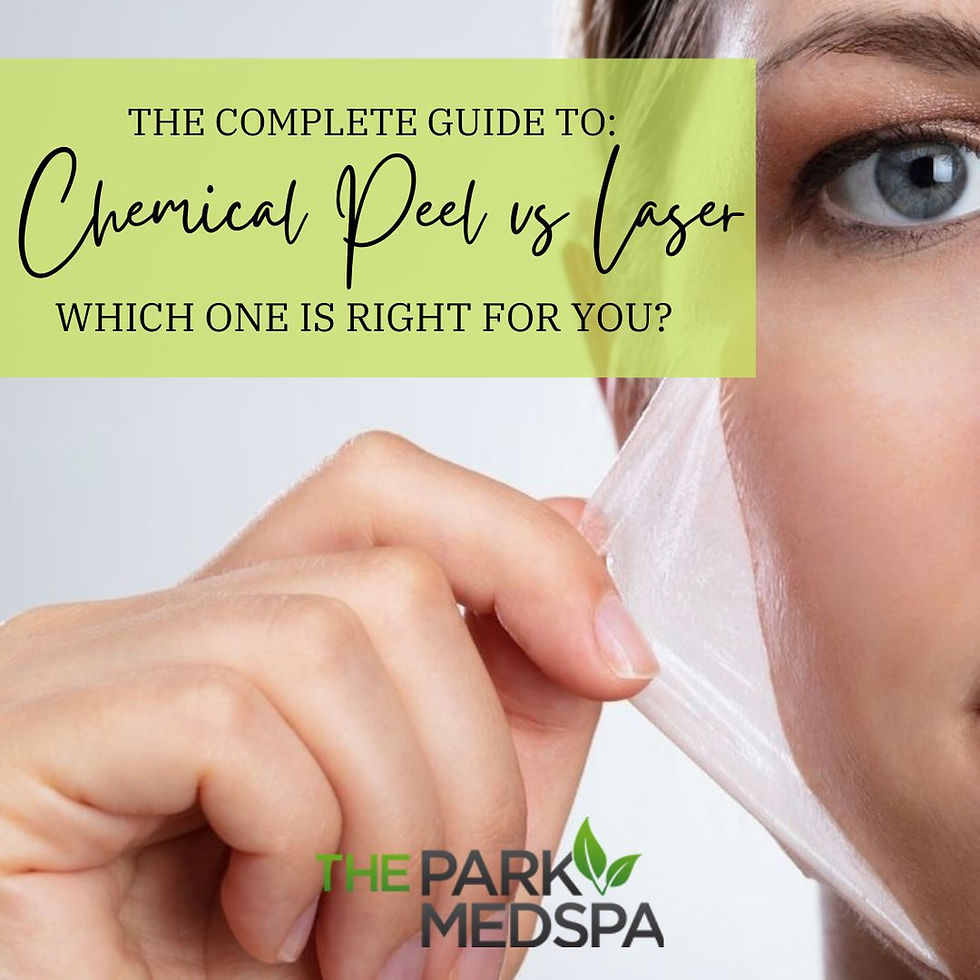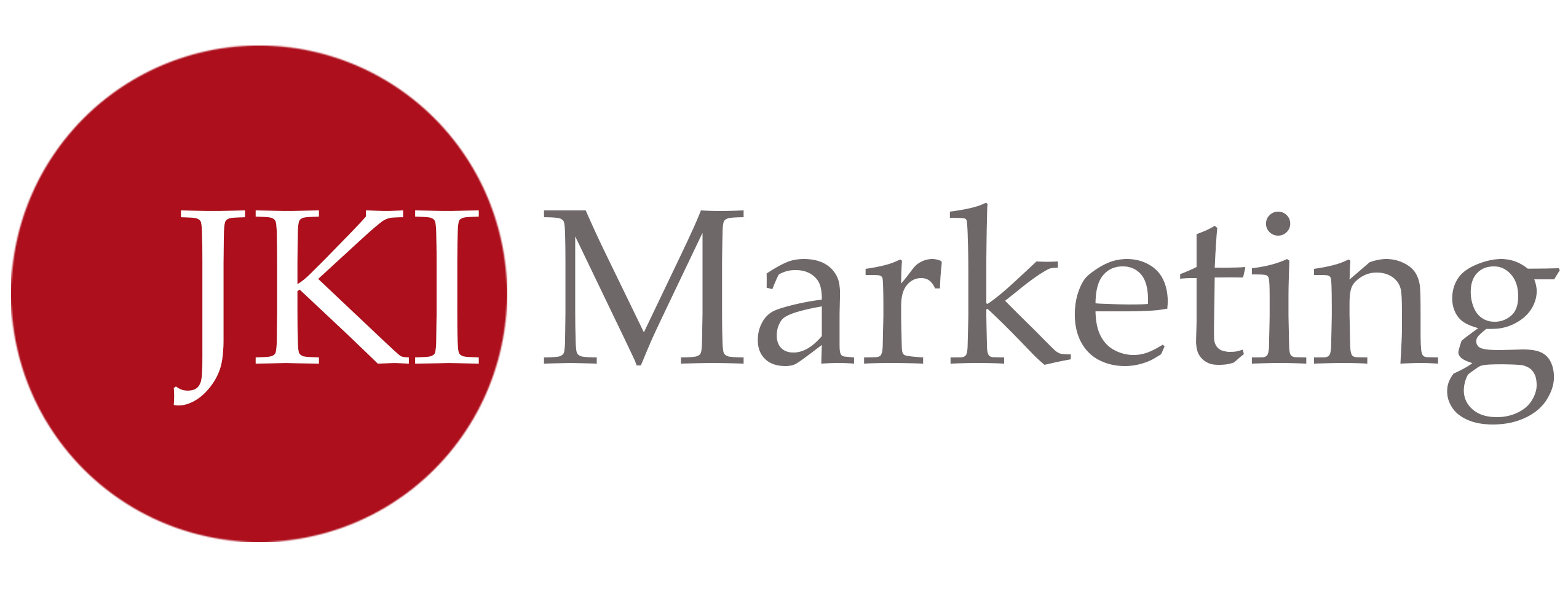The Complete Guide to Chemical Peels vs Laser: Which one is right for you?
- theparkmedspa20
- Jun 23, 2022
- 5 min read

With so many skin treatment options available on the market, it is quite hard to make a decision when thinking about getting a skin treatment. But if you are looking to have a restoration or rejuvenation procedure done, you have probably wondered about the difference between chemical peels and laser. Chemical peels and laser resurfacing are among the known procedures to improve facial wrinkles, blemishes, age spots, acne scarring, and sun damage. Both of these procedures should be completed by a professional but you might be wondering which one is right for you. This blog will assess the differences between the two and will give you the information you need to make the right choice.
What is Chemical Peel and How Does it Work?
A chemical peel is a skin exfoliation technique used to improve the appearance of the skin to a smoother and even texture. Chemical peels are composed of Alpha Hydroxy/Beta Hydroxy acids that are applied to the skin that causes the dead or damaged skin cells to peel off. As a result, new and healthy skin cells are revealed (cell turnover) to the surface leaving your skin glowing.
Three Types of Peel
There are three types of Peels: Superficial, Medium, and Light. It uses acid solutions with different intensities to remove the top layers of the skin.
Light Peels – it uses mild acids to help improve the appearance of mild skin discoloration and rough skin as well as to refresh the face, neck, chest, or hands.
Medium Peels - penetrate the outer and middle layers of skin to remove damaged skin cells. It helps to improve age spots, fine lines and wrinkles, freckles, and moderate skin discoloration.
Deep Peels - Cause a dramatic improvement in skin appearance. The procedure is used on the face and only can be performed once due to the use of strong powerful acids that deeply penetrate to remove damaged skin cells.
Level of Peeling
The levels of peeling experienced may differ depending upon skin type, resilience, type of peel, and the number of layers applied. Some may experience ‘sheeting (when large portions of the skin peel off at once), some may experience ‘flaking (when small pieces of skin peel off, similar to dry, winter skin or mild peeling after a sunburn) and others may experience exfoliation (at the cellular level) that is not visible.
The actual process of getting a chemical peel is quite simple, but there are a lot of recoveries that go on after the procedure. The peel damages the top layers of skin and is then followed by a healing process in which the new skin is generated. Most often, laser treatment is offered instead of deep peels due to the similar results it provides, with the laser giving less risk of complications.
What is Laser Resurfacing Treatment?
Laser resurfacing is a treatment that uses a concentrated beam of light from a laser device that passes through the skin to selectively heat the target to remove damaged skin cells and stimulate the growth of new ones. The procedure helps to improve the appearance of your skin. It can be used to treat wrinkles, fine lines, acne scars, and other types of skin irregularities.
TWO TYPES OF LASER
Laser resurfacing can be done with two different types of lasers: ablative and non-ablative.
Ablative Lasers remove the top layer of skin and heat the underlying skin which stimulates the growth of collagen. It delivers the best result but requires more downtime.
Non-Ablative lasers work below the surface of the skin. A technique in which lasers are used to resurface the skin to improve pigment and texture without physical injury to the skin surface. It delivers the best result but needs multiple sessions. Often require no downtime at all.
Laser resurfacing is usually done in a series of sessions. The number of sessions you need will depend on the severity of your concerns and your desired results. After laser resurfacing, you can expect your skin to be red and sensitive. You may also experience some swelling and peeling. These side effects will typically resolve within a few days to a week.
When to choose chemical peel vs laser resurfacing
There are many reasons to choose either chemical peels or laser resurfacing, but how do you know which one is right for you? Both chemical peels and laser resurfacing can offer significant benefits such as:
Treat acne scars
Reduce Hyperpigmentation
Eliminate fine lines and wrinkles
Reduces sun damage/age spots.
FACTORS TO CONSIDER WHEN CHOOSING CHEMICAL PEEL VS LASER RESURFACING
Your skin type: Chemical peels and laser resurfacing can both be used on all skin types, but certain types of skin may respond better to one treatment over the other. People with darker skin tones are more suitable for chemical peels in regard to hyperpigmentation issues.
Your goals: What are you hoping to achieve with your treatment? If you’re looking for a more superficial treatment to address fine lines and wrinkles, chemical peels may be a good option. If you’re hoping to improve the overall appearance of your skin, including addressing deep wrinkles and sun damage, acne, and acne scars laser resurfacing may be a better choice.
Your budget: Laser resurfacing is generally more expensive than chemical peels, so if cost is a factor, chemical peels may be the better option.
Your timeline: Laser resurfacing typically requires more downtime depending on its type than chemical peels, so if you’re looking for a treatment you can have done quickly with minimal recovery time, chemical peels may
PROS AND CONS OF CHEMICAL PEEL VS LASER
If the condition can only be addressed by one of the treatments exclusively, then you have your decision. If the condition can be treated by either procedure, then let’s take a look at the pros and cons of each treatment to help you make a decision:
CHEMICAL PEEL PROS & CONS

LASER TREATMENT PROS & CONS

Choosing to have a chemical peel or laser resurfacing might not be the easiest decision, but you can have it all with a combination of the two. Know what to expect and have the right expectations before deciding whether or not to have the procedure. Ultimately, the best way to decide between chemical peels and laser resurfacing is to consult a professional who can help you assess your goals and choose the best treatment plan for you.
WHERE TO BOOK CHEMICAL PEEL AND LASER TREATMENT IN NJ
If you are considering either chemical peels or laser treatments as an option to revive your skin, The Park Medspa Professionals is happy to help you decide and determine the best treatment plan just for you. Contact us today to schedule your free consultation





Comments